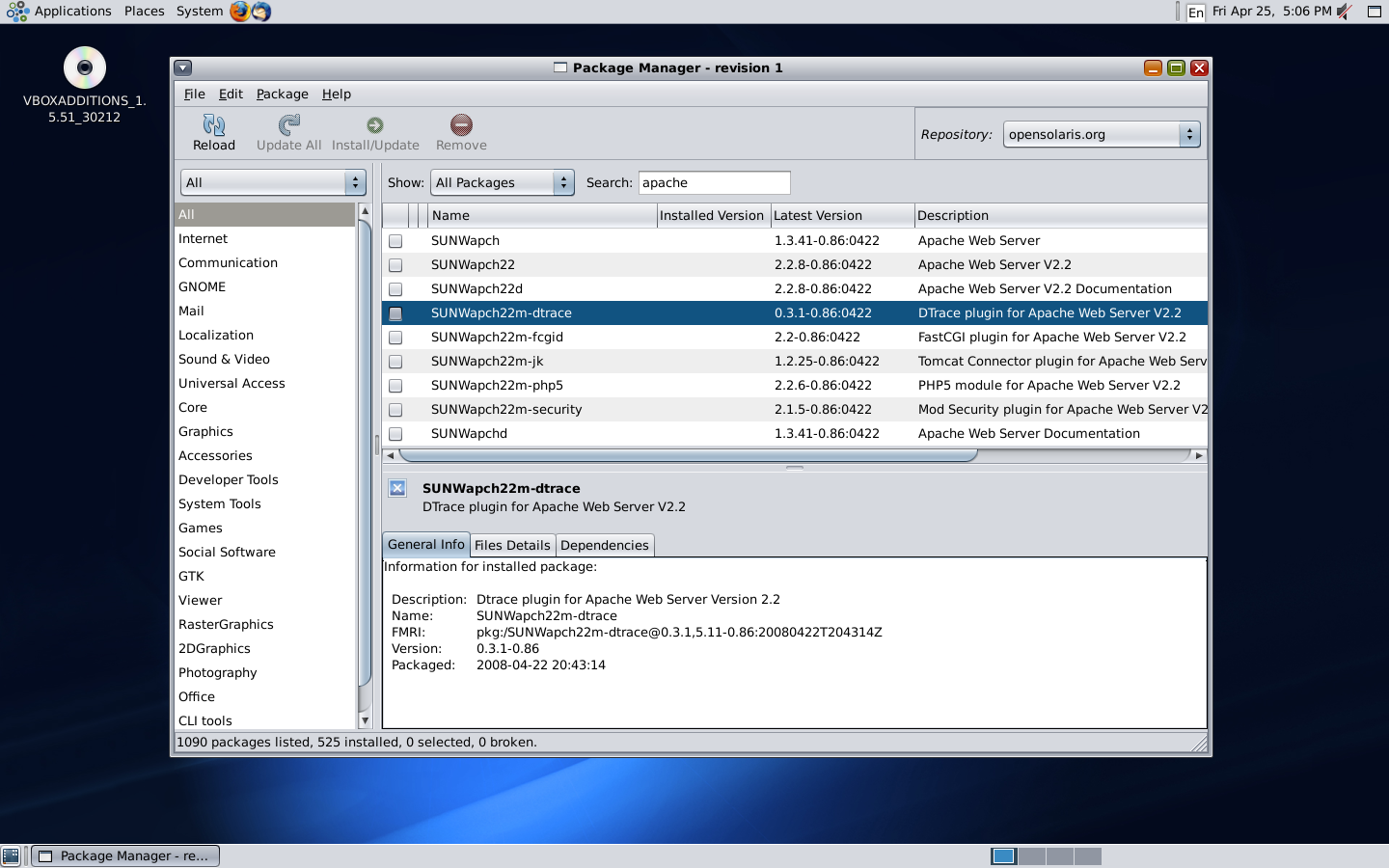Commercial OpenSolaris ships

After a three-year incubation period, Sun’s long promised OpenSolaris, the third open source variant of Unix, was officially delivered Monday.
"It's the first Opensolaris operating system that's fully supported," said Jim McHugh, vice president of Solaris marketing for Sun.
OpenSolaris will compete in a class that includes BSD and Linux, but the latter is its prime competitive target. Sun is already talking up the emergence of the so-called SAMP stack – Solaris, Apache, MySQL and PHP/Perl - and, as Dana B notes, OpenSolaris' storage potential.
What an uphill battle it will be for Sun.
Unlike Linux, neither the proprietary version nor the open source version of Solaris is released under the GPL. Although it is released under a homegrown, OSI approved license, this no doubt hurts OpenSolaris’ prospects in the marketplace.
Nevertheless, Sun is selling its story hard, promising commercial support for both the closed and open source versions of its Unix OS, which neither Red Hat nor Novell can match for their respective Linux distributions. Neither Red Hat’s Fedora nor Novell’s openSUSE, for example, come with commercial support like Red Hat Enterprise Linux 5 or Novell’s SUSE Linux Enterprise 10.
Sun claims that fees for annual commercial support – which range from $320 to $2,000 per system – are e in line with Solaris commercial support costs and are priced less than the nnual support for Red Hat Advanced Server.
Sun also maintains that several key features of OpenSolaris – namely DTrace performance monitoring, the ZFS file system with rollback capability and new Live CD installation and Image Packaging System (IPS) (see in screen shot below) – give it a technical edge over its Linux competitors and Solaris 10. Sun is happy to say it is the first open source distribution with ZFS as the default file system.
Sun even nailed a deal with Amazon to ensure that OpenSolaris would be a supported operating system of Amazon’s Elastic Compute Cloud (EC2). Beta availability of that was announced today.
The inclusion of a modern desktop operating system based on OpenOffice 2.0, GNOME, Firefox and CompBiz, moreover, makes OpenSolaris a compelling alternative to Linux, Sun executives say. Additionally, the integration of Solaris’ Container virtualization like technology and availability of VirtualBox for running Windows, Linux on OpenSolaris (and plans for a Xen-based OpenSolaris appliance later this year) gives Sun a decent virtualization story.
One analyst said OpenSolaris will be of interest to Sun junkies but likely poses little real threat to Linux. "OpenSolaris is likely to be of interest to a few audiences: traditional Solaris and/or Unix users interested in an open source version of the operating system, audiences interested in one or more of the differentiating technologies in the platform, and Linux users that may be curious about a competing *nix-like environment," said Stephen O'Grady, an analyst with RedMonk. "At the present time, there isn't a ton of crossover from buyers of one to buyers of the other, so it's not a clear and present danger [to Linux]."
Sun will announce OpenSolaris' commercial debut and show off a new logo to kick off its Community One conference today but there's little new here really.
Sun anointed its OpenSolaris community in 2005, and has released several developer previews before today’s release.
Some hoped OpenSolaris would be released under some version of the GPL or commonly accepted open source license like the ones governing the development of other open source projects it sponsors such as open source Java, Open Office and MySQL.
But it is not to be – at least for now. Sun is going with its non GPL-compatible Community Development and Distribution License (CDDL) – which allows developers to work within the open source world while also maintaining control of their intellectual property. That is a mistake if Sun intends to steal significant share from Linux.
“Sun releases software in a variety of license and we’re looking at one source communities and having discussions with many people," McHugh said. "We do have products under the GPL.”
So why not OpenSolaris?
[Click image to enlarge.]
